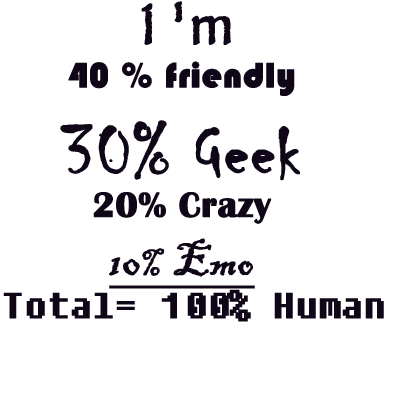As I go through this whole writing journey, I spend a lot of time observing other authors--be it in person or, more likely, on the internet. I want to know what makes one so successful and the other not as much. What makes one likable and another unapproachable. In other words, what separates the good from the great. And so, based on my very unscientific observations, I've come up with my own Ten Commandments. These are the things I've seen successful authors do and the things I strive to emulate. So here we go...
The Ten Commandments of a Successful Author
1. I will always strive to make the next book better than the last.
This is one that keeps me awake at night sometimes. The desire to make this next book better than the first one, to improve on every new project. We put so much effort into THAT book, you know the one to get the agent and the book deal. It's the best we have to give on a page. Then the dream happens and you're faced with book two and oh, you have a time limit this time, and oh if this one tanks, there may not be another book deal. *breathes into paper bag* The best authors out there manage to do this, even on tight deadlines, even when the check is already in the bank. They keep topping their own work.
2. I will not fear risk.
It's tempting to be safe, to stick to what you know and what you know works. But the best authors don't just put out book after book that follow the same formula. They take risks, they push boundaries, hell, some of them even test out different genre waters. With no risk, there's no challenge. Write the stories you want to write. If some don't work out, that's okay.
3. I will never believe "I'm the sh*t." Well, at least not for an extended period of time.
We've all seen it. The author that hits whatever level and now seems to wear the "I'm the sh*t" tiara. Don't do it. No matter if you top every bestseller list. It's okay when you get a good review or hit a list or write a passage that rocks to think to yourself--yep, I'm kind of rocking it right now. But don't let it go to your head. No one's that awesome.
4. I shall not wallow in a pool of self-pity and doubt when someone doesn't like me or my writing.
Someone, probably many someones, will absolutely hate your writing. It's inevitable. You can't please everyone. If you let negative feedback get in your head, it will eat away at your confidence like cancer. This goes for rejections too. Feel the sting, eat a piece of chocolate or take a shot of whiskey--whatever you're preference--and move on.
5. I will never respond to a bad review.
I said never. You hear? Never. I'm sure most of you saw the brouhaha on Twitter/Facebook/message boards the other day over a writer who lashed out at a reviewer online. At some point in your career, you will want to do this. It's human. You will want to yell, scream, insult, bestow your wrath upon someone who said something bad about your book.
Don't do it. This is what friends and spouses are for--call them, let it out, cuss. But never lash out publicly or at the reviewer. This will only serve to make you look petty and childish, which will make people not want to deal with you or buy your books. Reviews are for readers, not you. If you can't help reacting, stop reading them. (And remember, the internet is viral. One untoward comment can make the rounds faster than a case of croup at a daycare.)
6. Covet your neighbor's success. A dose of envy does a writer good.
There are all these posts out there about writer envy and jealousy telling you how you shouldn't waste time being envious of other writers and what they have, their level of success, etc. Yes, that's true. If you spend all your time burning green, you won't get anything else done. BUT, a little bit of this can be helpful. So and so got an agent and you haven't yet? Your crit partner hit the bestseller list but you can't seem to? Feel that envy and USE it. Use it as kindling under your butt and light a fire to keep going, to get what you want, to grab that success too. Envy with motivation can be very productive. Envy with whining and no action is what you need to avoid.
7. "Good enough" will never be good enough.
The best authors don't settle for good enough. If you've sold a bazillion books and you already have a deal for the next and everyone is lining up just for the privilege of sharing your air, it could be tempting to just write something that's "good enough". But the best authors don't. They put as much heart and guts into every book they put out every time.
8. I will not apologize for what I write.
Do not apologize for your passion. There are stigmas against all kinds of genres, not just romance like I talked about last week. But this is your writing, your story, and your blood on the page. Playing down what you write is playing down who you are. I know this one will be tough for me because once my book comes out, people in my life will know exactly what I write. I know some will judge me for it. I won't apologize for it. I'm proud of it.
9. I shall pay it forward.
The best writers give back. No we can't help others all the time. If Stephen King answered every email from a newbie on how to be a writer, he'd never get anything done. But he did write On Writing, which is a way of giving back what he's learned (even though, granted, he did make money writing that book.) So no matter how busy you get, try to find time to help others out. Maybe it's to offer a query crit to someone who hasn't queried before, maybe it's having a blog that gives information that everyone can benefit from, maybe it's volunteering your time at conferences or judging a contest. Whatever it is, find something. Think of those who've helped you in your journey. Don't you want to be one of those people another writer can think of?
10. Don't forget to have fun--you love this, dumbass. (Even when it's hard.)
It's easy to get caught up in the day to day--this chapter is so hard, I have a saggy middle, why won't these agents answer my queries--rut. But never forget, this is your dream. Enjoy the act of writing. And good Lord, if you do become published, don't spend your time whining about the minutiae. It's okay for authors to tweet if they're struggling with an edit or whatever, but too much of that sounds like a whole bunch of whine. This is what your private group of writer friends are for. That's where you can whine because it CAN be hard sometimes and it can be overwhelming. But it's still a dream job. So many people want this. If you get to be successful at it, be thankful and for heaven's sake, enjoy it! You get to make stuff up for a living and pants are optional.
So those are the ten writing commandments I'm working toward, what are some of yours? Which would you add? And which authors do you think emulate these things?











